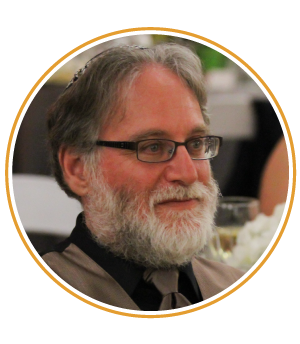 An essential purpose of Torah is to demonstrate to us that God is present everywhere; God is all-powerful and omnipresent. As we enter into parashat Terumah, the Israelites have just experienced their liberation from Egypt by way of God’s domination of nature through the ten plagues, the splitting of the Sea and the drowning of Pharaoh’s army. The Israelites learn that God is everywhere and there is nothing that God cannot do.
An essential purpose of Torah is to demonstrate to us that God is present everywhere; God is all-powerful and omnipresent. As we enter into parashat Terumah, the Israelites have just experienced their liberation from Egypt by way of God’s domination of nature through the ten plagues, the splitting of the Sea and the drowning of Pharaoh’s army. The Israelites learn that God is everywhere and there is nothing that God cannot do.
Parashat Terumah describes the construction of the mishkan, the sanctuary that accompanies the Jewish people in their wanderings through the wilderness. And while it provides great detail about the construction of the mishkan, it fails to address a most important question — Why do the people need to construct a “sacred space” for God to dwell among them?
One possibility is that the Israelites, who had been released from their bondage through the ten plagues and the splitting of the Sea of Reeds, suddenly find themselves without the presence of their leader. Moses has gone up the mountain to meet with God, leaving them alone in the wilderness, disorientated and in despair. The Israelites, overwhelmed anxiety over an uncertain future without Moses as leader, fear for their lives. Out of this fear the people take refuge in a god of their own making, as we will read in Parashat Ki Tisa in two weeks from now.
The mishkan, however, is God’s prescriptive defense against this fear. It is God’s assurance that they have not been abandoned and that they are not alone. It is God’s assurance that they will not be destroyed as they witnessed the destruction of the Egyptians.
In Parashat Terumah God says,
“Make for Me a sacred space (mikdash), that I may dwell within it (b’tocham).” – Exodus 25:8
It has often been noted that the Hebrew expression b’tocham, translated here as “within it”, is actually in the plural and should be translated “within them”. The rabbis suggest that this teaches us that God dwells within each and every person who makes space within for God.
The “sacred space” of Parashat Terumah therefore, is not limited to the physical mishkan. It is that “sacred space” where God dwells within our hearts. We find comfort in our moments of fear and uncertainty when we feel God’s presence within us. That is the sense of b’tocham – God’s command is understood to create the space for God’s presence to dwell within the community of Israel, and also “to dwell within them” individually.
Increasingly these days, in countries around the world, civil discourse has given way to the politics of fear. Rather than seeking to overcome the divisiveness caused by differences of opinion, ethnic diversity and political partisanship by engaging with others and seeking to draw us nearer to one another, the politics of fear is employed to widen the gap between us and to demonize the other, causing us to view one another as opponents or enemies.
Discovering the mishkan within us allows us to resist this temptation, to enter into conversation – with open eyes and open hearts — to enter into relationship and draw us nearer to one another.
Parashat Terumah asks us if, in spite of the politics of fear, we can build a mishkan, a “sacred space” within our hearts that will invite God’s presence to comfort and strengthen us, and to help us to transform our fears into understanding, unity and hope for our future.
Ken Yihi Ratzon


Parashat Terumah describes the construction of the mishkan, the sanctuary that accompanies the Jewish people in their wanderings through the wilderness. And while it provides great detail about the construction of the mishkan, it fails to address a most important question — Why do the people need to construct a “sacred space” for God to dwell among them?
One possibility is that the Israelites, who had been released from their bondage through the ten plagues and the splitting of the Sea of Reeds, suddenly find themselves without the presence of their leader. Moses has gone up the mountain to meet with God, leaving them alone in the wilderness, disorientated and in despair. The Israelites, overwhelmed anxiety over an uncertain future without Moses as leader, fear for their lives. Out of this fear the people take refuge in a god of their own making, as we will read in Parashat Ki Tisa in two weeks from now.
The mishkan, however, is God’s prescriptive defense against this fear. It is God’s assurance that they have not been abandoned and that they are not alone. It is God’s assurance that they will not be destroyed as they witnessed the destruction of the Egyptians.
In Parashat Terumah God says,
“Make for Me a sacred space (mikdash), that I may dwell within it (b’tocham).” – Exodus 25:8
It has often been noted that the Hebrew expression b’tocham, translated here as “within it”, is actually in the plural and should be translated “within them”. The rabbis suggest that this teaches us that God dwells within each and every person who makes space within for God.
The “sacred space” of Parashat Terumah therefore, is not limited to the physical mishkan. It is that “sacred space” where God dwells within our hearts. We find comfort in our moments of fear and uncertainty when we feel God’s presence within us. That is the sense of b’tocham – God’s command is understood to create the space for God’s presence to dwell within the community of Israel, and also “to dwell within them” individually.
Increasingly these days, in countries around the world, civil discourse has given way to the politics of fear. Rather than seeking to overcome the divisiveness caused by differences of opinion, ethnic diversity and political partisanship by engaging with others and seeking to draw us nearer to one another, the politics of fear is employed to widen the gap between us and to demonize the other, causing us to view one another as opponents or enemies.
Discovering the mishkan within us allows us to resist this temptation, to enter into conversation – with open eyes and open hearts — to enter into relationship and draw us nearer to one another.
Parashat Terumah asks us if, in spite of the politics of fear, we can build a mishkan, a “sacred space” within our hearts that will invite God’s presence to comfort and strengthen us, and to help us to transform our fears into understanding, unity and hope for our future.
Ken Yihi Ratzon